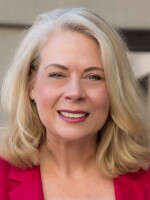What do Morgan Freeman, Jane Fonda, and Martin Sheen all have in common? Give Up? Well obviously, they’re all famous actors– but notably, they’re all over 80 years old yet still actively working! I mean Clint Eastwood, at 92, is not only starring in but directing the new movie Cry Macho. And there are a host of younger actors – “relatively speaking” in their seventies – who are still working, too.
Collectively, they represent a growing trend of people who are working into older age and dispelling long-standing notions about aging and retirement.
Well, I’m your host Al Waller, and joining me is Catherine Collinson, founding president and CEO of nonprofit Transamerica Institute® and its Transamerica Center for Retirement Studies®. On this episode of ClearPath—Your Roadmap to Health & WealthSM we’re going to talk about people’s perceptions of retirement, how it’s changed over the years, and what she’s calling “the new face of retirement.”
So Catherine, you and your team at Transamerica Center for Retirement Studies recently released its 21st Annual Retirement Survey of Workers. Well done! -- I mean that’s an absolutely huge accomplishment!!
But before we delve into the survey’s findings, could you please take us on a brief trip down memory lane and talk about what it was like in those early days of the survey?
Catherine Collinson
We did our first survey around the turn of the millennium. As you may remember, it was a time when the whole world was holding its breath, wondering if there would be a global computer meltdown on Y2K when the clock struck midnight on January 1, 2000. Back then, we did telephone surveys. So, our first survey was a telephone survey on landlines and before many people had internet access.
We were excited to do the survey because we knew the retirement landscape was changing and we wanted to better understand the implications. What was happening at the time? 401(k)s were relatively new and gaining in popularity, while traditional pensions were starting to disappear. Baby Boomers were on the eve of their 55th birthday, a milestone birthday defined in many pension plans as being the early retirement age.
Al Waller
Wow, Catherine, listening to that litany of events from back then, that really was a long time ago!! I vividly remember the Y2K frenzy as I was coordinating the hiring of IT professionals with mainframe legacy systems expertise. The pool of talent was so limited, we were practically recruiting folks out of retirement and paying them about as much for a few months service as they made in their highest 2 years of earnings in some cases. It was what you may call a real windfall for retirees!
But that said, what was the societal vision of retirement back then say, compared to now?
Catherine Collinson
Things have really changed. Now, work and retirement are no longer mutually exclusive, which I consider to be a positive change, especially for people who want or need to continue working. And as I think we’re all aware, there are widespread concerns that retirement savings are relatively low among older workers. So, for those who are healthy enough to continue working, the opportunity to do so can bring in additional income, bridge savings gaps so people are more financially prepared when they do fully retire.
In a nutshell, gone are the days of the mythical gold watch retirement that was ushered in with an office party with punch and cookies, immediately followed by a life of full-time leisure and, ironically, never having to set your alarm clock again. The days of that myth are gone and looking back, makes us think for how many ppl did that myth ever become a reality.
Al Waller
So, what does retirement look like for most people these days?
Catherine Collinson
Our 21st Annual Retirement Survey of Workers— which you mentioned earlier—found that almost four in 10 workers actually “dream” of doing some form of paid work in retirement, such as continuing to work in their own field, starting a business, or having an encore career. And, of course, they have other retirement dreams like travel and spending time with family and friends. I’d also like to point out when we asked about expectations of work, more than half, in fact 57% said they plan to continue working at least part-time in retirement.
What’s also really intriguing, it’s not all about the money. When we asked, we found workers are just as likely to cite what we call “healthy aging-related reasons” as financial reasons for planning to continue working beyond age 65 or in retirement. And these healthy aging reasons include things like staying active, keeping our brains alert, enjoying what we do, and, very importantly, having a sense of purpose.
Al Waller
Well, I couldn’t agree with you more. In fact, a family friend who is now 92 years old and is going strong says the key to a long health life is to “keep moving because once you stop, that’s pretty much it.”
But going back to encore careers is actually reflective of my own story because I retired after a long career as a human resources executive and consultant in the corporate world. I was really ready to call it a day, however, the idea of just passing time on the porch or working on my golf game…such as it is - or isn’t…was never going to be enough. So, I was determined to find something that would give me pleasure, allow me to give back, and not take up a lot of my time. In that vein, I returned to my roots in radio for an encore career and was actually fortunate enough to land this gig hosting ClearPath, which has been fantastic! To add to the irony or serendipity…when I was in college, I was a DJ for WJHU, the radio station that would later become WYPR, Baltimore’s NPR news station and home of this podcast. I suppose you could say I’ve really come full circle.
Now, that said Catherine, I’ve been thinking that the term, “retirement” is really beginning to sound like an oxymoron. I mean if retirement includes working, is it really retirement?
Catherine Collinson
Al, you’ve struck a nerve. It’s a hot topic among aging experts – meaning experts in the field of aging and not experts who are aging or maybe a little of both. Nevertheless, there are heated conversations about retiring the word “retirement,” but no one has yet to come up with anything to replace it. So, in my view, for now and the foreseeable future, the word “retirement” is the word we have. It’s indelibly engrained in our collective societal psyche.
It is an interesting question you pose. If retirement includes working, what is “retirement”? We have explored that topic in our surveys. And what we found among workers is that their view of retirement is a time of “freedom. That’s the closest word association. Freedom is a chapter in life where we can live on our own terms, spend our time on what’s most important to us—whatever that may be, of course. We also saw another common theme that retirement is either dropping out of or graduating from the “rat race”. Of course, financial security plays an important role.
Al Waller
I’m certainly sold on this vision of retirement. But I also know that it doesn’t just happen automatically. It requires careful planning and preparation and laying a lot of groundwork. Based on your research findings, what are some things that people can be doing – but aren’t yet doing to help prepare themselves?
Catherine Collinson
Good question, Al. The four tips that I’m about to share may sound basic, but the reality is, our research finds that many people aren’t doing them yet – or at least not doing as much as they could – I’d like to highlight them.
- Create a financial plan that factors in short-term goals and a long-term retirement strategy – and a household budget that supports these goals. Once the plan is in place, stick to it, follow your progress and you may need to make some deliberate adjustments along the way, when needed.
- Build emergency savings while saving for retirement. Interestingly, our survey found that most workers are really good about saving for retirement, but they have relatively little in emergency savings, which they are going to need if they encounter a financial shock or unplanned major expense.
- Invest in your own human capital. What does that mean? In short, keep your job skills up to date. One of my observations is that people tend to overlook the importance of their own personal earning power and staying relevant in the marketplace.
- Safeguard your health. If we’ve learned anything from the pandemic, it’s the importance of protecting our health so we can continue doing the things we love to do whether it be spending time with family and friends, working in our chosen profession, pursuing hobbies, or maybe volunteering at a local nonprofit. Our health is our wealth.
Al Waller
Couldn’t agree with you more. This really has been an insightful, important and delightful conversation, Catherine. Now where can listeners go to find your recent survey and learn more?
Catherine Collinson
You can find our 21st Annual Retirement Survey of Workers and all our research on our website at transamericainstitute.org. Follow us on Twitter at @TI_insights and @TCRStudies to stay up to date with our latest publications and releases.
Al Waller
Well, I think we can call is a wrap here. Thank you for listening to ClearPath—Your Roadmap to Health & Wealth. You can find our weekly podcast on WYPR’s Podcast Central and mobile app- wherever you get your podcasts-and at transamericainstitute.org/podcasts.
I’m your host Al Waller. Until the next time, stay safe, be well, and keep your eyes on the prize and into the future.
𝑇ℎis 𝑝𝑜𝑑𝑐𝑎𝑠𝑡 𝑖𝑠 𝑝𝑟𝑜𝑑𝑢𝑐𝑒𝑑 𝑏𝑦 Transamerica Institute, 𝑤𝑖𝑡ℎ 𝑎𝑠𝑠𝑖𝑠𝑡𝑎𝑛𝑐𝑒 𝑓𝑟𝑜𝑚 𝑊𝑌𝑃𝑅.
ClearPath: Your Roadmap to Health & Wealth is brought to you by Transamerica Institute, a nonprofit private foundation dedicated to identifying, researching, and educating the public about retirement security and the intersections of health and financial well-being.






